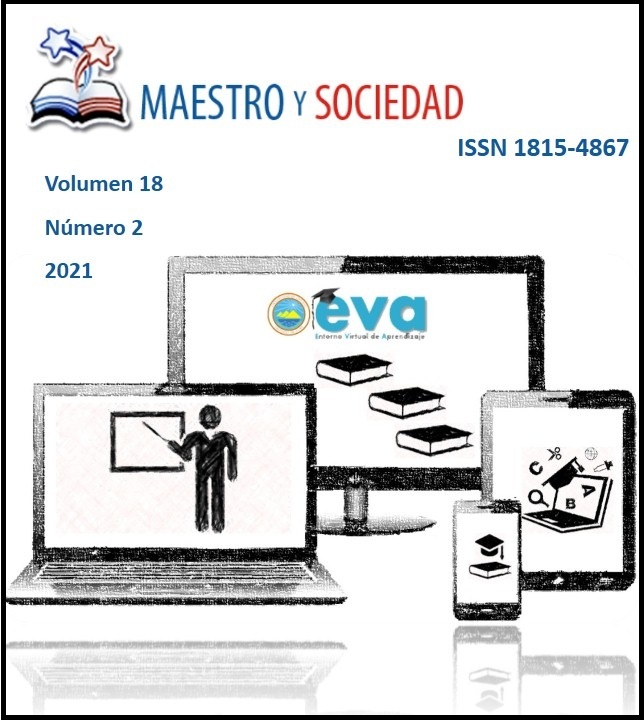Formative Assessment: the role of feedback in the development of critical thinking
Array
Keywords:
critical thinking, formative assessment, feedbackAbstract
The main objective of this study is to determine the relevance and viability of feedback as an essential element of formative evaluation for the development of critical thinking. The documentary analysis method and the synthesis analysis method were used for hermeneutical inquiry and theoretical systematization. The results evidence show that formative feedback allows students to develop critical thinking; This feedback is constituted in a mediation activity of the teacher, based on a horizontal dialogical educational communication that will focus on reflection and the shared vision of learning, allowing the student to assess their achievements, difficulties, progress, and to participate prominently in the making decisions about their own learning, which is the basis of critical thinking.
References
2. Boud, D. & Molloy, E. (Coords.) (2015). El feedback en educación superior y profesional. Comprenderlo y hacerlo bien. Madrid: Narcea.
3. Candel, C., Vidal-Abarca, E., Cerdán, R., Lippmann, M., Narciss, S. (2020). Effects of timing of formative feedback in computer-assisted learning environments. Journal of Computer Assisted Learning, 36(5), pp. 718-728. DOI: 10.1111 / jcal.12439
4. Deroncele, A. (2020a). Paradigmas de investigación científica. Abordaje desde la competencia epistémica del investigador. Arrancada, 20(37), 211-225. Recuperado de https://revistarrancada.cujae.edu.cu/index.php/arrancada/article/view/331/233
5. Deroncele, A., Medina, P., y Gross, R. (2020). Gestión de potencialidades formativas en la persona: reflexión epistémica y pautas metodológicas. Universidad y Sociedad, 12(1), 97-104. https://rus.ucf.edu.cu/index.php/rus/article/view/1417
6. Deroncele, A., Nagamine, M., & Medina, D. (2020). Desarrollo del pensamiento crítico. Maestro Y Sociedad, 17(3), 532-546. Recuperado de https://maestroysociedad.uo.edu.cu/index.php/MyS/article/view/5220
7. Deroncele-Acosta, A. (2020b). Competencia epistémica del investigador. En A. M. de Vicente Domínguez y N. Abuín Vences (Coords). La comunicación especializada del siglo XXI. (pp. 53-77). Madrid, España: McGraw-Hill.
8. Huang, S. C. (2016). An action research on fostering critical thinking in EFL writing through formative assessment and feedback. Contemporary Educational Research Quarterly, 24(1), 81-105. DOI: 10.6151/CERQ.2016.2401.03
9. Liu, N. F. y Carless, D. (2006). Peer feedback: The learning element of peer assessment. Teaching in Higher Education, 11(3), 279–290.
10. Martínez, F. (2011). La evaluación formativa del aprendizaje en el aula. Revista Mexicana de Investigación Educativa, 17(54), 849-875.
11. Medina, P., & Deroncele, A. (2019). La evaluación formativa desde el rol del docente reflexivo. Maestro y Sociedad, 16(3), 597-610. Recuperado de https://maestroysociedad.uo.edu.cu/index.php/MyS/article/view/4979
12. Ministerio de Educación del Perú. (2006). Guía para el desarrollo del pensamiento crítico. Lima: MINEDU.
13. Ministerio de Educación del Perú. (2016). Currículo Nacional de Educación Básica. Lima: Minedu.
14. Mollo-Flores, M., & Medina-Zuta, P. (2020). La evaluación formativa: hacia una propuesta pedagógica integral en tiempos de pandemia. Maestro y Sociedad, 17(4), 635-651. Recuperado de https://maestroysociedad.uo.edu.cu/index.php/MyS/article/view/5235
15. Montero, A. (2016). Cómo desarrollar el pensamiento crítico? Consejos para saber por dónde empezar. Aika Education, 15, 24-36. Recuperado de http://www.aikaeducacion.com/consejos/8-consejosdesarrollar-pensamiento-critico/
16. Novakovich, J. (2016). Fostering critical thinking and reflection through blog-mediated peer feedback. Journal of Computer Assisted Learning, 32(1), 16-30. DOI: 10.1111/jcal.12114
17. Nurdini, Y., Wulan, A.R., Diana, S. (2020). Assessment for learning through written feedback to develop 21st-century critical thinking skills on plantae learning. Journal of Physics: Conference Series, 1521(4). DOI: 10.1088/1742-6596/1521/4/042019
18. Nurhijah, S. S., Wulan, A. R., Diana, S. (2020). Implementation of formative assessment through oral feedback to develop 21st century critical thinking skills of student on plantae learning. Journal of Physics: Conference Series, 1521(4). DOI: 10.1088/1742-6596/1521/4/042021
19. Palacios, M. L. y Deroncele, A. (2021). La Dimensión Socioemocional de la Competencia Digital en el marco de la Ciudadanía Global. Maestro y Sociedad, 18(1), 119-131. https://maestroysociedad.uo.edu.cu/index.php/MyS/article/view/5318
20. Pedrosa, H., Guerra, C., Watts, M. (2019). Active co-constructive written feedback: Promoting students' critical thinking in a higher education context. ACM International Conference Proceeding Series, 129-136.
21. Pellegrino, J. (2020). Important Considerations for Assessment to Function in the Service of Education. Educational Measurement: Issues and Practice, 1-5. Recuperado de https://doi.org/10.1111/emip.12372
22. Pereira, D., Assunção, M., Veiga, A. & Barros, A. (2016). Effectiveness and relevance of feedback in Higher Education: A study of undergraduate students. Studies in Educational Evaluation, 49, 7–14.
23. Ravela, P. (2020). La autoevaluacion Institutional como herramienta de mejora. Recuperado de http://repositorio.sineace.gob.pe/repositorio/handle/sineace/6261
24. Salamanca, B. (2018). El pensamiento crítico: por qué, para qué y requisitos para desarrollarlo. Nure Inv. 15(94), 1-3. Recuperado de https://www.nureinvestigacion.es//OJS/index.php/nure/article/view/1541
25. Sanchez, T, L. B. y Manrique, M, S. (2018). La retroalimentación más allá de la evaluación; Sociedad Argentina de Estudios Comparados en Educación. Revista Latinoamericana de Educación Comparada 14; 89-104. Recuperado https://ri.conicet.gov.ar/handle/11336/95978
26. Soozandehfar, S. M. A. (2020). Accounting for change in critical thinking components mediated by differential effects of paper-based vs. Web-assisted feedback in writing. Applied Research on English Language, 9(3), 365-381. DOI: 10.22108/are.2019.117949.1472
27. Tobón, S., Martinez, E., Valdez, E. y Quiriz, T. (2018) Practicas pedagógicas: Análisis mediante la cartografía conceptual. Revistas Espacios, 39(53), 31-46. Recuperado de http://www.revistaespacios.com/cited2017/cited2017-31.html
28. Zabala y Aranau (2007). 11 ideas clave. Cómo aprender y enseñar competencias. Barcelona: Editorial Graó.
Published
How to Cite
Issue
Section
License
This journal provides immediate open access to its content, based on the principle that offering the public free access to research helps a greater global exchange of knowledge. Each author is responsible for the content of each of their articles.



























 Universidad de Oriente
Universidad de Oriente 